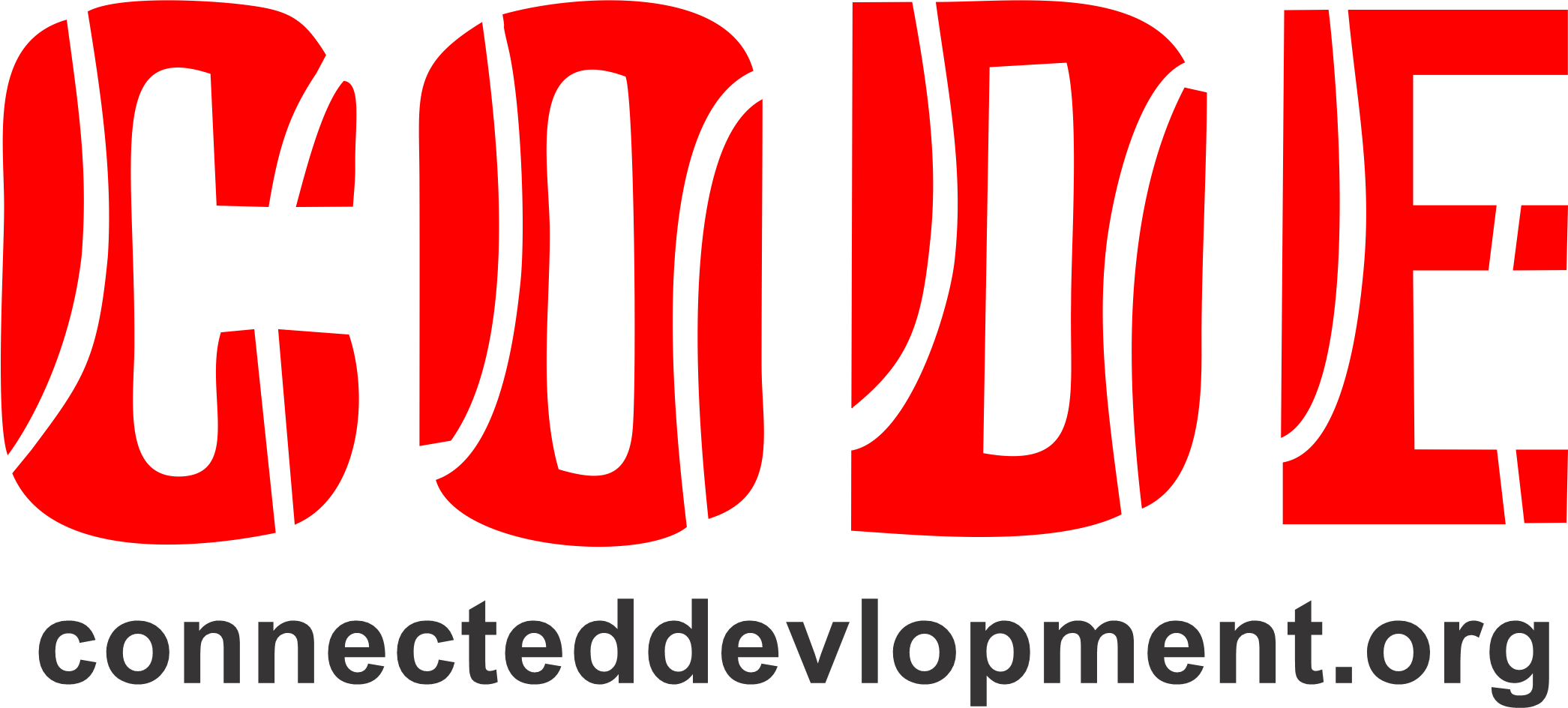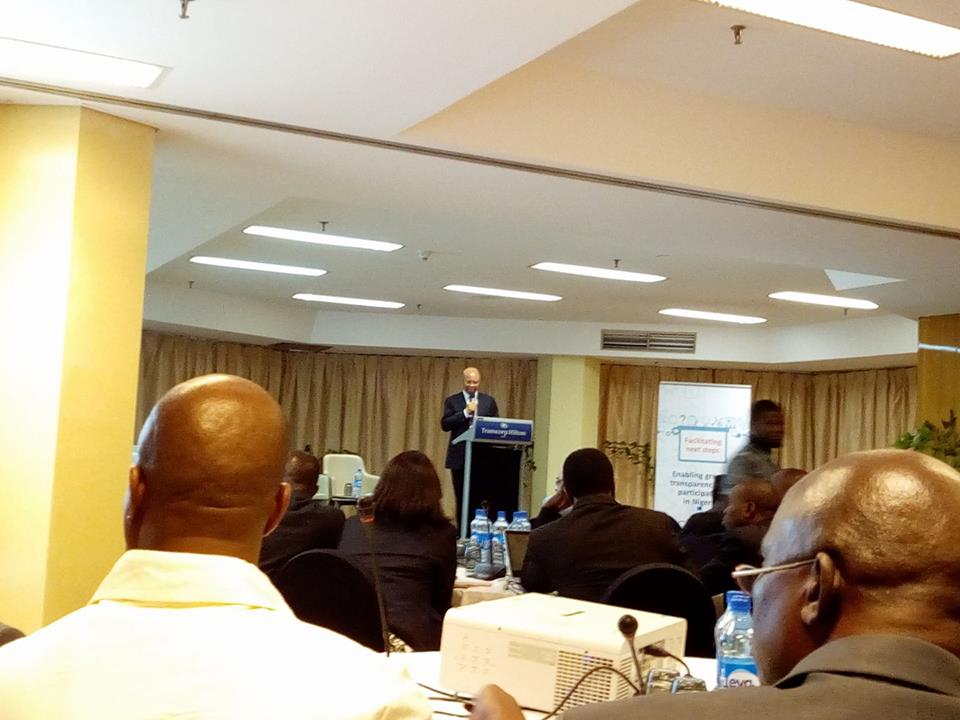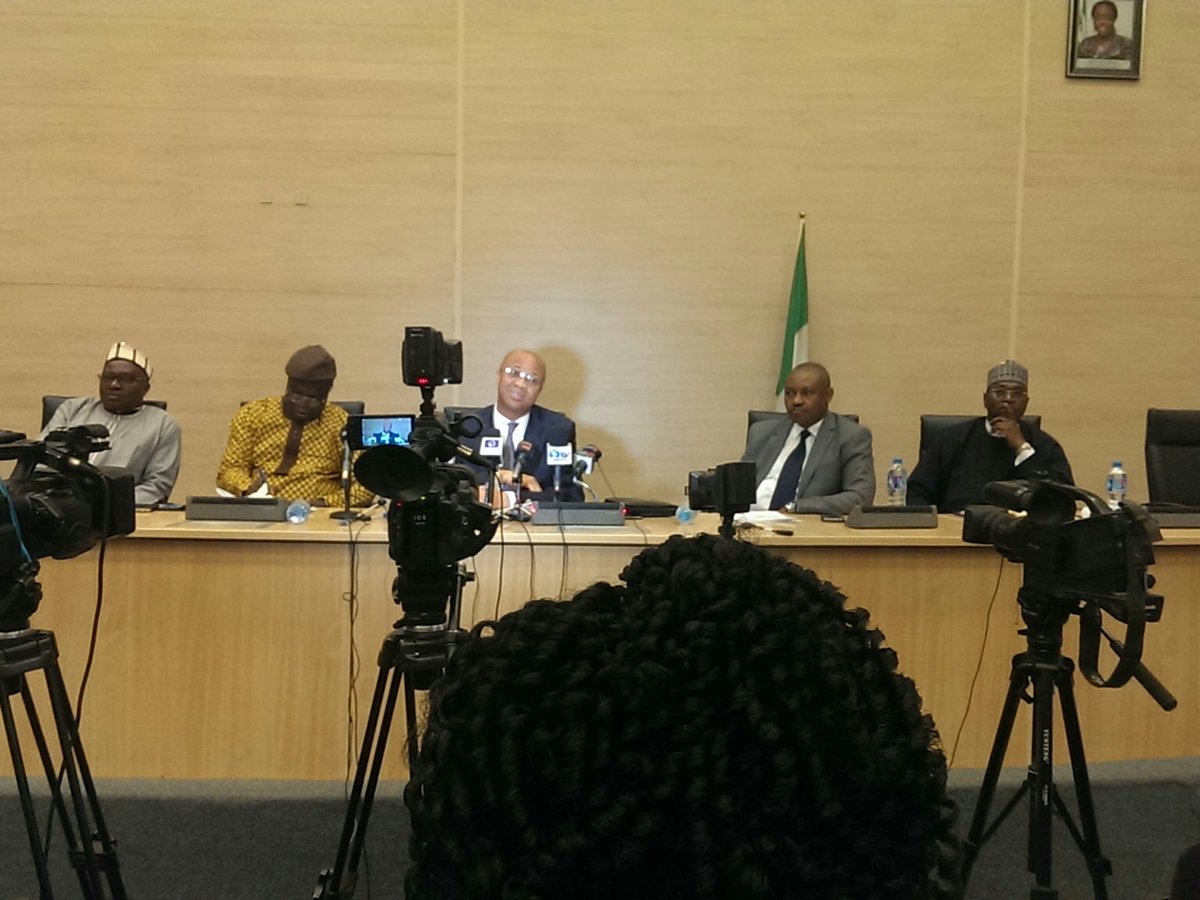Nigeria’s 2017 Budget – Is the Country Poor?
After extensive parish-pump, pedestrian and partisan theatrics on the 2017 Appropriation Bill passage and minimal cause célèbre regarding its presidential assent, the 2017 Appropriation Act was finally signed into law on the 12th of June 2017 by the Acting President, Prof Yemi Osinbajo. Consequently, on 19 June 2017, as a convention, the Ministry of Budget and National Planning (MBNP) organized a public presentation of the Act. In attendance were numerous relevant governmental/non-governmental stakeholders. While I was partly impressed by Sen Udo Udoma’s (Minister of Budget and National Planning) presentation, in which he elementrified several components of the budget, let me start by registering few concerns and remarks:
First, the Budget Process – It is quite despondent that there was no sense of urgency on the part of the National Assembly to expedite the Appropriation Bill’s passage. The theatrics of the delay in the passage was driven my personal and partisan interests with utmost disregard over consequent budget implementation retardation denouement and the concerns of Nigerians. This was exactly an echolalia of what happened with the 2016 budget which affected its implementation. Nothing was learnt from the 2016 retardation. Note that, a financial year starts from 1 January of every year and ends on December 31. However, this budget cycle crisis has persisted over time and will affect the 2017 budget implementation, as well as the economic growth rate assumption of 2.2% by the government as discernible in its Economic Recovery and Growth Plan (EGRP).
Secondly, Nigeria is really a poor country – While Nigerians dance around the epileptic euphoria of being an oil-rich country, it’s imperative to note that the international energy dynamics have changed with oil losing its worth on a daily basis. While the country’s 2017 budget is at NGN7.44t ($25b), the highest ever, for a country of over 180 million population, this shows Nigeria is poor. The budget per capita is NGN40,000, roughly $100. That is what the government intends to spend on each Nigerian in the year. This is with the endemic poverty, low illiteracy and life expectancy rates, gross infrastructural deficit and low manufacturing capacity. Comparatively, Indonesia’s 2017 budget is at $158b for a population of 257 million putting the budget per capita at $614. Notably, as one of Nigeria’s former economic comparators, it has outperformed Nigeria on an avalanche of macro-economic metrics with far better infrastructure. Furthermore, the budget of the State of California in the United State alone for 2017 is at $179b.
The shocking part is that Nigeria’s $25b budget has a deficit of NGN2.35t (est. of $8b). This really means Nigeria is poor, for her not to be able to fund such nanoscopic deficit. In the 2016 fiscal year, Apple Inc. made revenue of $215b. Nigeria’s expected revenues from oil this year is roughly at $8b. This shows innovation and technology are the future of today’s world. But Nigeria cannot be considered ready for this, as she also appropriated a petty NGN41.7b for capital expenditure in Science and Technology in the budget.
Thirdly, Capital Expenditure – While the government prides itself for raising capital expenditure from 15% in 2015 (which is quite unbelievable) to 31% in 2017 [which is commendable], the country has to do more in this regard. The government cannot basically be using the budget for recurrent costs.
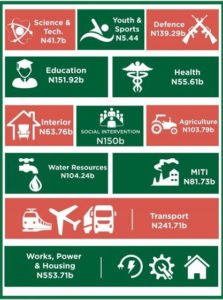
Major MDA Capital Allocations – Source, Budget Office of the Federation
Going back to the Minister’s presentation and further contents of the budget, he commented, “The budget was designed to expand partnership between public and private sectors, including development capital to leverage and springboard resources for growth and restore the economy, all in line with the ERGP’ In sum, the budget intends to focus on:
- Infrastructural expansion – NGN553.7b for Works, Power and Housing and NGN241.7b for Transport. This is to spur growth, improve ease of doing business, facilitate diversification efforts, fund agricultural value chain and provide an enabling environment for businesses.
- NGN 46b for the establishment of Special Economic Zones (SEZ) in each of the geo-political zones to drive manufacturing and exports – While this is welcoming. It seems it’s at this time Nigeria is really thinking of development. It can also be said that low oil prices is forcing the country to manufacture ideas. Its run-of-the-mill economic sense that if you cannot provide sufficient infrastructure and environment for businesses that you establish SEZs for such to attract foreign and domestic investors. East Asian countries such as Singapore, Indonesia and China all established such zones in the 70s and 80s. Nigeria is late to this party.
- Encouraging the growth of small and medium industries through the recapitalization of the Banks of Industry and Agriculture with NGN15b to increase access to financing.
- And providing a social safety net for poor Nigerians.
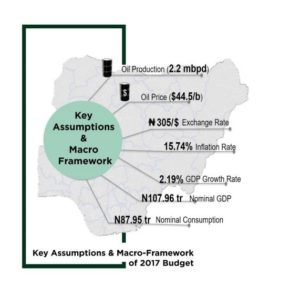
Key Assumptions and Macro-Framework of 2017 Budget – Source, Budget Office of the Federation
In furtherance, the NGN7.44t budget has key assumptions such as: oil production at 2.2mbpd, benchmark oil price at US$44.5/b, the exchange rate at N305/US$ and the aforementioned economic growth rate of 2.2%. The budget also envisages total revenue of NGN5.08t, exceeding that of 2016 by 30.2%, with capital expenditure at NGN2.36t.
Moving forward, first, the problem has always been implementation crisis as well as the lack of transparency, accountability and citizen engagement in governmental spending. There is a great need for increased transparency and accountability in the budget’s implementation with updates on capital releases for effective public oversight. This is following the Minister of Finance comment at the event that the government already has the first tranche capital release of NGN350b. Secondly, while there are already promises in this respect, both from the Executive and Legislature, something should be done quickly about the budget cycle crisis. Topical commitments to see that the 2018 budget is passed by December this year should be followed with sufficient political will and commitment to have that realized. Ultimately is swift implementation of the budget considering we are already at the half of the year.
I wish the government goodluck with the budget implementation.
Chambers Umezulike is a Senior Programme Manager at Connected Development and a Development Expert. He spends most of his time writing and choreographing researches on good and economic governance. He tweets via @Prof_Umezulike.
